-
What We Do
- WHERE WE WORK
-
About Us
 Welcome Message from Carol Jenkins
Welcome Message from Carol JenkinsFor more than 90 years, World Learning has equipped individuals and institutions to address the world’s most pressing problems. We believe that, working together with our partners, we can change this world for the better.
On my travels, I’ve had the opportunity to meet with many of those who have joined us in this mission. In Baghdad, we’ve trained more than 2,300 Iraqi youth who are already giving back at home. In London, our partners in the TAAP Initiative strongly believe that we are all responsible to practice inclusion. And in Vermont, our Experiment in International Living and School for International Training participants prove every day that they have the tools and the determination to change the world.
Please join us in our pursuit of a more peaceful and just world.
- Get Involved
Media Center > Story
Before and After: The Life-Changing Effects of an International Exchange Program
April 23, 2019
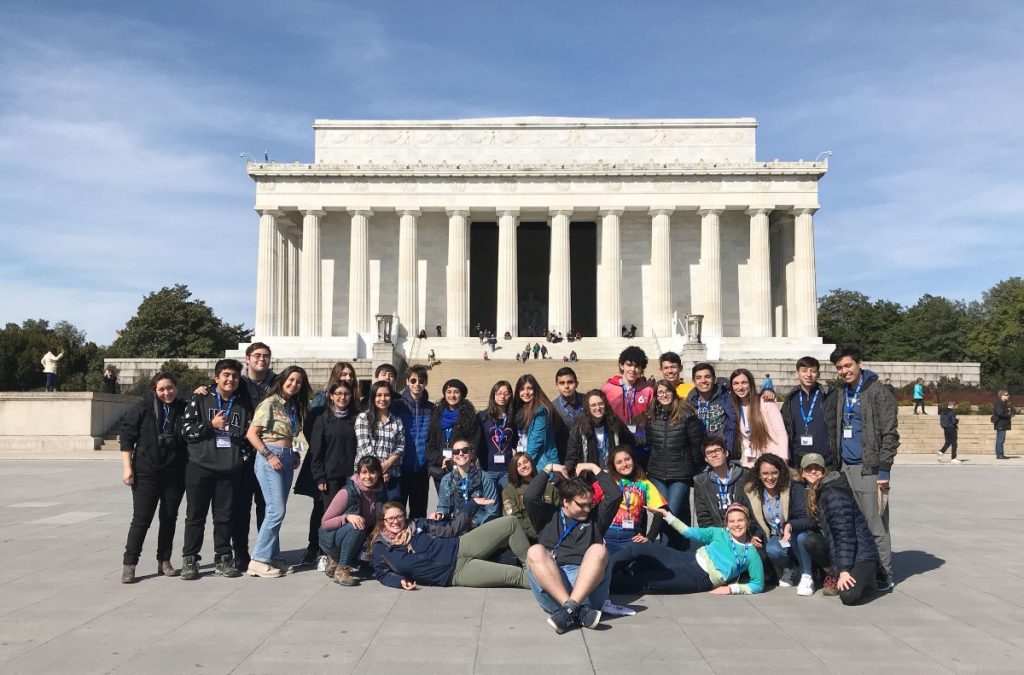
Three weeks may not seem like a lot of time. But when you’re on an international exchange program, three weeks can be transformative.
This spring, high school students from Argentina and Chile shared just such a life-changing experience as part of the Youth Ambassadors Program. Sponsored by the U.S. Department of State, with funding from the U.S. government, the program brings together high school students and adult mentors from across the Western Hemisphere for three-week exchanges to the United States to promote mutual understanding, increase leadership skills, and prepare youth to make a difference in their communities.
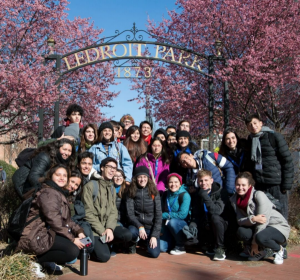 Youth Ambassadors explore cities and communities across the U.S. during their exchange. This cohort from Argentina and Chile started their exchange in Washington, DC, where they learned about U.S. history and culture. Then the group split up and fanned out to Kansas City, Missouri, and Denver, Colorado, for nearly two weeks to live with U.S. families and become part of local communities. The host community segment of the exchange was implemented in partnership with Global Ties KC and WorldDenver, members of the Global Ties Alliance. Finally, they returned to Washington, DC, where they developed and presented their ideas for projects they would carry out in their home communities upon their return.
Youth Ambassadors explore cities and communities across the U.S. during their exchange. This cohort from Argentina and Chile started their exchange in Washington, DC, where they learned about U.S. history and culture. Then the group split up and fanned out to Kansas City, Missouri, and Denver, Colorado, for nearly two weeks to live with U.S. families and become part of local communities. The host community segment of the exchange was implemented in partnership with Global Ties KC and WorldDenver, members of the Global Ties Alliance. Finally, they returned to Washington, DC, where they developed and presented their ideas for projects they would carry out in their home communities upon their return.
World Learning caught up with the group at the beginning and end of the exchange to find out what difference that three weeks made. Among them was Paula Castro, a participant from Mendoza, Argentina who said, “I had no idea how many doors would be opened for me. Now I just see the world differently. I just want to keep on doing this, keep on inspiring, keep on traveling, and keep on learning things. This was easily the best experience of my life.”
Read more about her experience and that of her fellow Youth Ambassadors below:
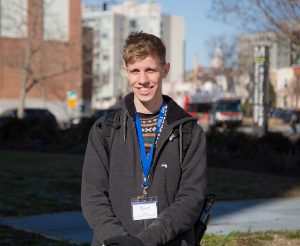 José I Vieux
José I Vieux
Diamante, Argentina
BEFORE THE HOMESTAY:
José I Vieux has always longed to see the world. Having only ever visited countries bordering his native Argentina, he jumped at the opportunity to travel to the U.S. as a Youth Ambassador — a program that also matched his interests in learning more about politics and leadership. He was especially excited for a homestay in Kansas City. He didn’t know what to expect from that adventure into the heart of the U.S., but planned to keep his eyes wide open. “You get to know a whole different culture,” he said. “This is a whole different world.”
AFTER THE HOMESTAY:
For José, the happiest memory of his trip was meeting the family that he lived with during his stay in Kansas City. Throughout his stay, the family — two parents, a younger sister, and an older brother — took him out for dinner and other activities. “I can assure you that the most impressive and best thing that this program gives you is the host family,” he said. “I got to know the American life from the inside.”
Though he didn’t share the same political perspectives as his host family, living with them gave him the opportunity to understand them, and shattered some of his stereotypes about American people.
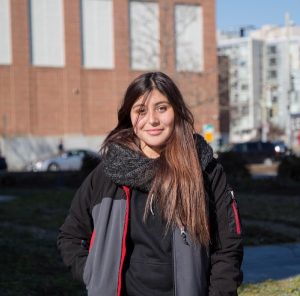 Alexia Paz
Alexia Paz
Iquique, Chile
BEFORE THE HOMESTAY:
Alexia Paz believes serving her community — through beach clean-ups, visiting with senior citizens, and volunteering with animal shelters — has made her a better person. She joined the Youth Ambassadors Program at the recommendation of her teacher in the English Access Microscholarship Program, thinking it could help her improve her English and her ability to serve. She was most excited to start working on her community project, which she envisioned would involve providing services for orphans. “I’m not just learning English,” she said. “I’m learning values. I’m learning how to make those values work. I’m learning how to be useful in my community.”
AFTER THE HOMESTAY:
Alexia found new inspiration for her community project during her stay in Kansas City. Through excursions and site visits, the Youth Ambassadors met with local firefighters and organizations like Operation Breakthrough, which provides support to children and their families struggling with poverty. These meetings helped Alexia better understand what she could do to help children in her own city of Iquique. “I have a lot of ideas in my mind now,” she said. Realizing that her city’s bureaucracy might make it impossible to work with orphans, she decided instead to work with children ages 4 to 12, offering them a healthy space to forget about their problems through games and fun activities. “So it’s more close to me and more real.”
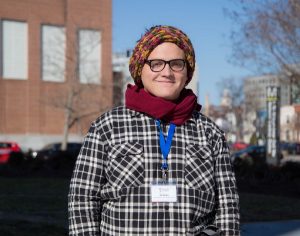 Nehuen Salazar
Nehuen Salazar
Temuco, Chile
BEFORE THE HOMESTAY:
Nehuen Salazar fights for gender and LGBTQ equality. Over the past year, he’s worked to raise awareness in his high school about these issues, encouraging students and teachers to talk about gender identity and stereotypes. He applied to join the Youth Ambassadors Program to help sharpen his leadership skills and become an even more effective advocate. He was particularly interested in improving his social skills, which he thinks are critical in getting people to talk about these issues. “I want to help and be a supporting person for my classmates and learn to feel like a better person,” he said.
AFTER THE HOMESTAY:
Though Nehuen may not have been prepared for the weather in Denver — which was particularly cold compared to his home in southern Chile — he was inspired by all he had the opportunity to do there. The Youth Ambassadors volunteered with a local food bank, visited a library dedicated to African-American history, met with refugees and immigrants, and took leadership workshops. These experiences have helped Nehuen achieve all that he set out to do. “I really feel that I have improved my skills and my abilities,” he said. “Now it’s easier for me to make any project starting from zero. I don’t have the fear that I cannot do what I want to do. I’m more confident about myself.”
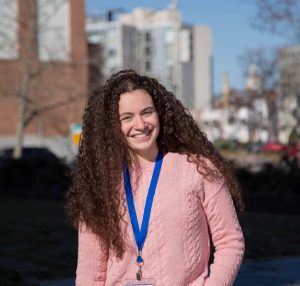 Paula Castro
Paula Castro
Mendoza, Argentina
BEFORE THE HOMESTAY:
Paula Castro loves being involved in her community. She’s a member of Model UN and a student-body legislator at her school, where she’s interested in helping students learn how to train their brains to study more effectively. She was excited to apply for the Youth Ambassadors Program since it offered her a chance to carry out a project that could create change in her community, but she also had another important goal in mind: to improve her own skills — in leadership, empathy, and more — so that she can inspire others. “I think as a young woman I have the job to inspire any woman, any person, to be better, to make a change,” she said.
AFTER THE HOMESTAY:
Paula was amazed by the changes she saw in her fellow Youth Ambassadors when they all reconvened in Washington, DC, after their stays in Kansas City and Denver. “I really see how they improved,” she says. “They’re more outgoing and confident about themselves.” She sees those changes in herself, too. Though she’d been a bit worried about whether she’d fit in with her host family in just 12 days, she found she adapted quickly and became so close to her host sister that they began to consider themselves best friends. “My goal was to learn about other ways of thinking and to see things from different positions, be more empathetic, and to inspire,” she said. “I really expected the program to make me that person and I think it has. I’m not the same as before. I think I’ve gotten better. We all have.”





